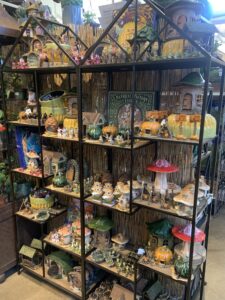Is Your Team Costing You?
How often have you read articles in the press about the big box store retailers becoming the garden retail category killers and closing independent garden centers as they increase their market share?
Yes, it is true. They have had a major effect on market share amongst retailers, and many independents have suffered as a result. The big box strategy has been to sell garden products as a commodity, and they have generally driven the market on price.
How does an independent retailer defend its market share when a large retailer plays the price card? There are a number of strategies, but one of your secret weapons is your team.
Proactive or Reactive
Your team may or may not be on your side in this battle. You have to provide proactive, not reactive, customer service. As a general rule, mass merchandisers rely on a reactive customer service policy, i.e., if you want it, ask and we may help. Independent retailers should provide a proactive customer service policy, which will give you a point of difference that is memorable.
The above industry scenario of mass merchandisers and independents is not unique to the United States. It is also a challenge throughout Europe, Australia and Asia.
My recent work with the industry in Australia and New Zealand has revealed that both countries believe independent garden centers provide positive customer service, with owners frequently telling me that their teams were providing excellent customer service. We put this theory to the test, or rather mystery shoppers from the industry put it to the test.
In Australia, we had a group mystery-shop small independent retailers to assess their customer service. They found that 20 percent of the retailers surveyed were pro-active to the customer and 80 percent were reactive and often ignored the customer.
In New Zealand, a nursery industry survey of the leading independent garden centers gave a score of 35 out of 100 as the average for proactive customer service, when the industry was expecting scores in the 70s and 80s.
I realize there are cultural differences between Australia, New Zealand and the United States, but the questions are the same: How many customers are you losing, and how many dollars are not going into your business because of the habits of your team? In other words, how much is your team costing you?
When it’s not the team’s fault
I’m not criticizing teams in our garden centers. Any team in any business operates within the culture of that business and performs to the standard they believe the owners or managers require.
In many businesses, a culture shift is necessary for the development of a winning team. This may include reviewing policy, business strategy, communications, vision, training and objectives.
I recently worked with a garden center team who was performing reasonably well, but we were discussing how they could go the extra mile. One of the team members said the problem was they felt like they were floating. When I asked her to explain, she said how could she go the extra mile when the management team was not setting goals for her. Her suggestion was for management to “set targets for us, and we will show how good we are.”
Training the team has to be an essential part of your strategy to compete with the big box stores. Someone once said to me that they don’t train their staff in case they left the business to work somewhere else. What scared me wasn’t the employers not training so much as the staff staying with the business as an untrained team. Investing in your team is essential for the success of any business. (Find out more about team training on page 62.)
The rules of the game
The objective is to increase the average sale per customer while forming a relationship with that customer. How can that be achieved? In a big box store, the aim is selling a commodity, and the personnel within the business are usually just selling-tools, money makers. In independent garden centers, the team member has to be a host, consultant and seller; it’s a lot more complex.
First, as an owner, you have to recruit someone with personality, provide technical knowledge to ensure they have confidence and then empower them to make decisions. Assuming you have the right team member and the right culture, you then have to introduce consistent attributes that can be measured.
Winning host attributes:
- Wearing a company uniform
- Using name badges
- Maintaining positive body language
- Using a pleasant tone of voice
- Giving a verbal welcome and farewell where appropriate
Winning consultant attributes:
- Using open questions to start a conversation
- Having technical knowledge
- Communicating their knowledge
- Thinking for the customer in anticipating their needs
- Using the language of the consumer, not industry jargon
- Turning features in benefits
- Being a good listener
Winning seller attributes:
- Knowing when to close the sale
- Selling something then linking the sale to another
- Promoting recommended brands within your business
Top sellers have relationships
Top sales teams form relationships. They don’t have customers; they have their own clients, and those clients sell your business to potential new clients.
What secret do they hold? A good general rule is to ask three questions about the customer: their life, their hobbies or their plans, prior to moving into the consultant role. Consultants are excellent at forming relationships with customers, and their average sale is higher than other employees’.
There are many ways you can beat the big box stores investing time and effort into developing a winning team is just one. Remember the rules of the game: create an innovative business culture, recruit people with personality and then develop their skills. The key is really valuing your team and the role they have in your business; if you don’t, they could be costing you dearly.
















 Videos
Videos





